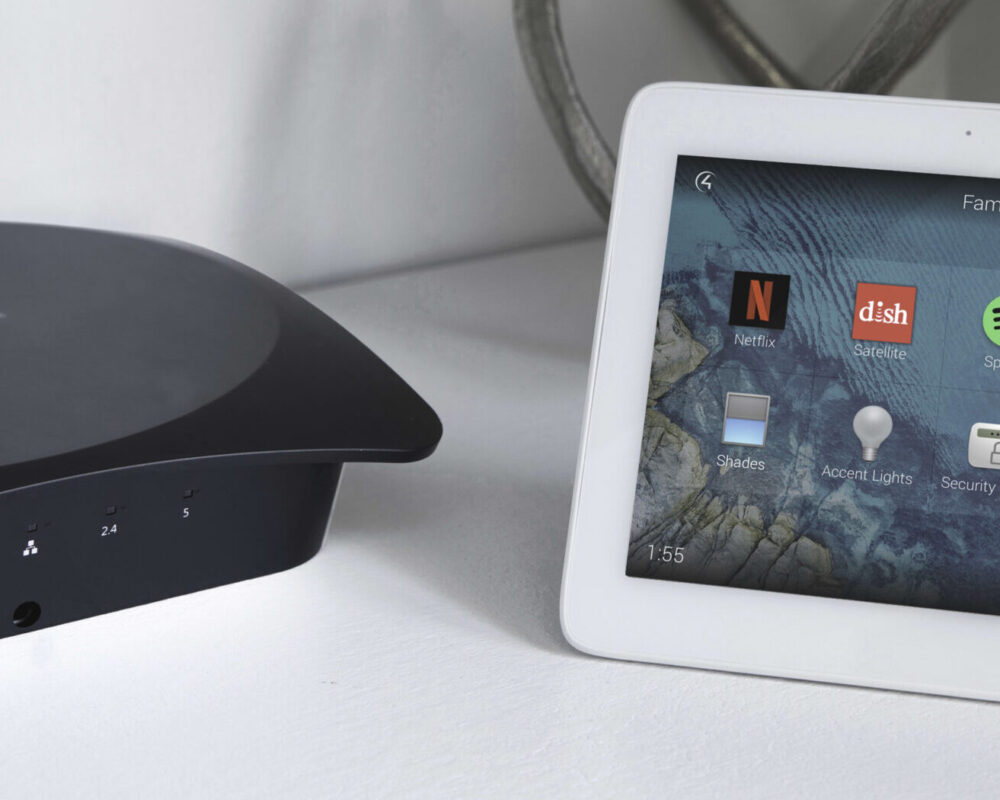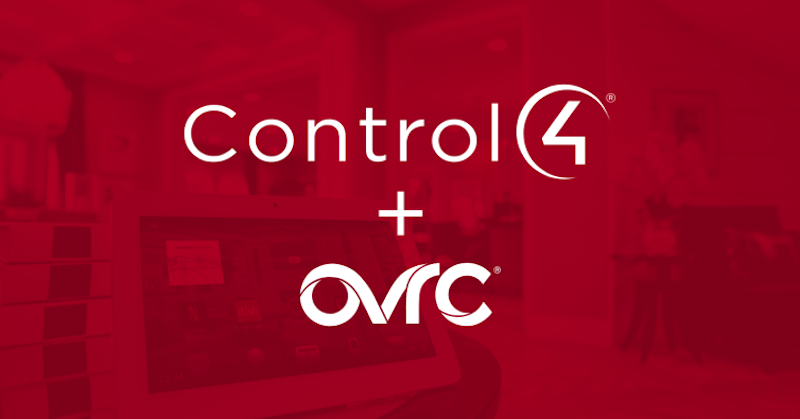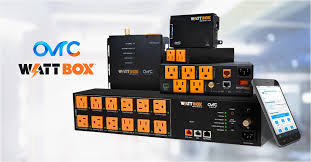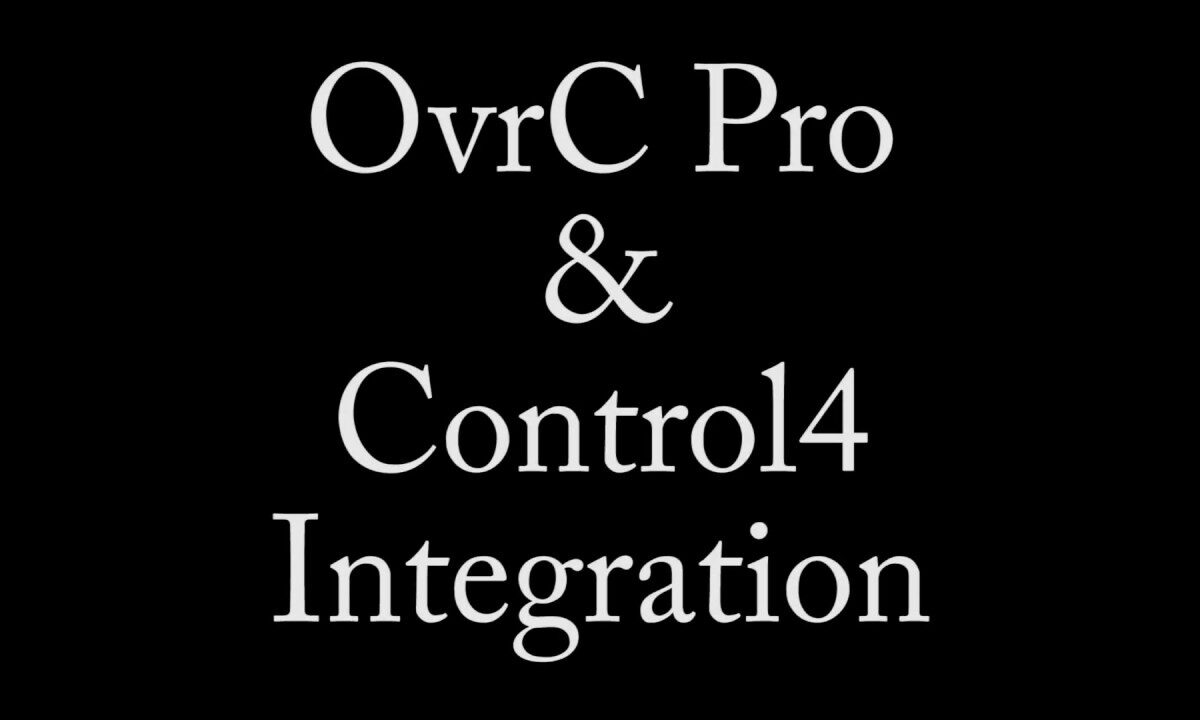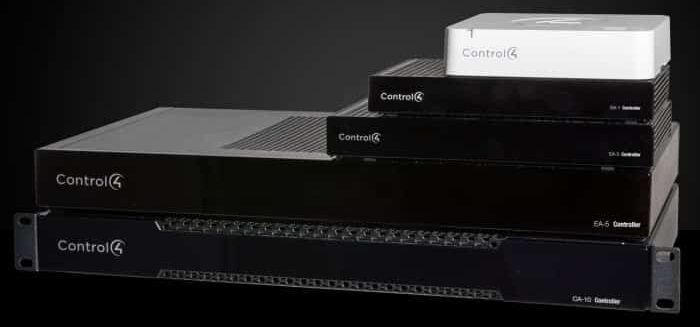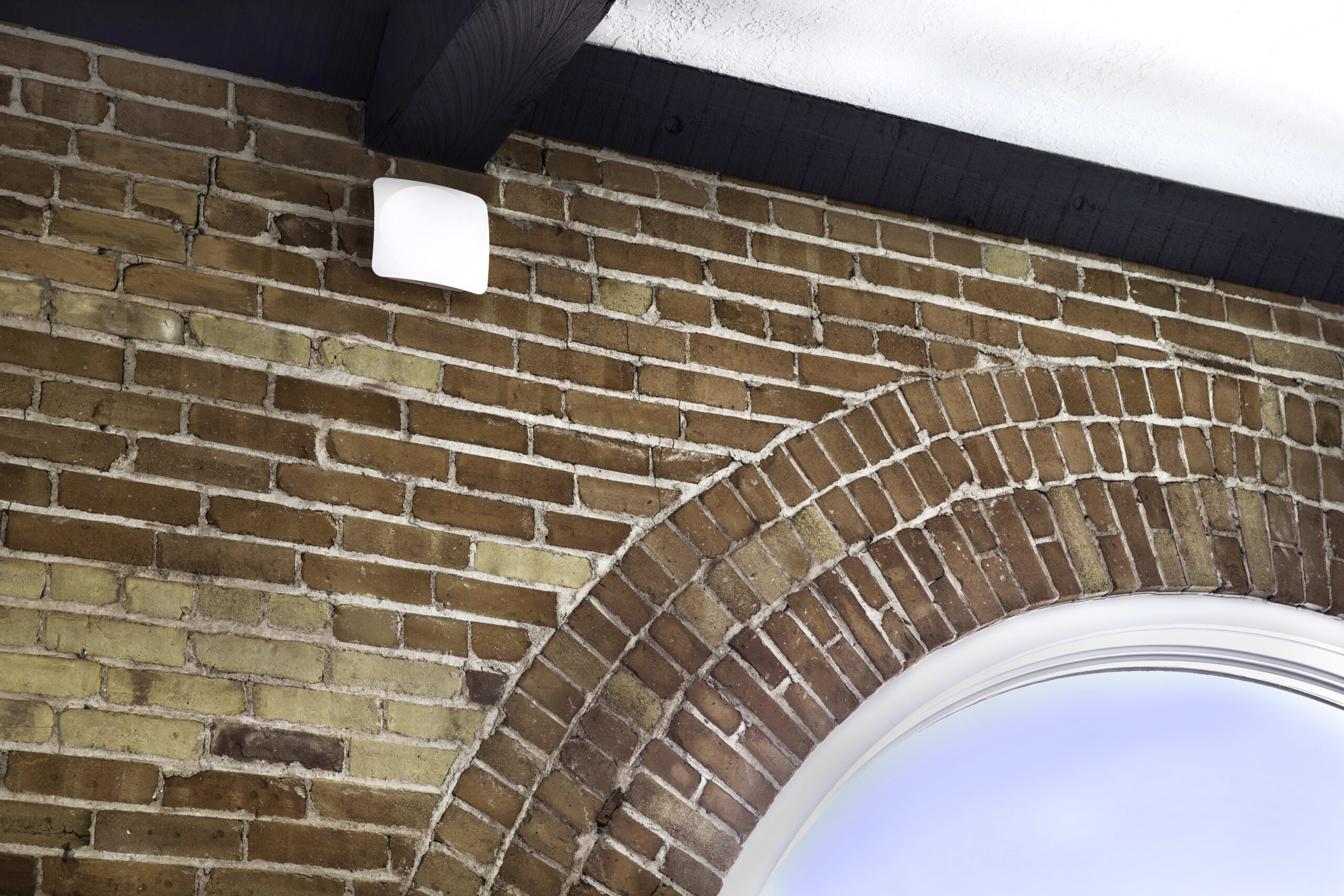

















The Importance of Networking Equipment in a Smart Home
Networking equipment plays a critical role in the functionality, performance, and security of a smart home. As the foundation of connectivity, it enables seamless communication between various smart devices and systems, ensuring they work together efficiently. A robust network infrastructure is essential to realize the full potential of a smart home, where multiple devices—from lights and thermostats to security cameras and voice assistants—need to communicate in real-time.
When designing a robust network plan there are a number of considerations that need to be taken into account such as available infrastructure / bandwidth at the project location. Anticipated bandwidth needed for the intent of the project including wifi access points in critical areas throughout the space, number of networked devices such as TVs, cameras and streaming devices as well as number of users and guest users.
Key Networking Components:
Router: The router serves as the central hub of a home network. It connects all smart devices to the internet, allowing them to access remote services and interact with each other. A high-performance router is crucial to ensuring strong signal strength, minimal latency, and the ability to handle multiple connected devices simultaneously.
Modem: The modem connects the home network to the internet service provider (ISP). It translates digital signals from the ISP into a format that the router and devices can understand. Without a reliable modem, the smart devices won’t have internet access, impacting their functionality. More often than not, GiCor recommends bridging the modem into two separate networks, one for the smart home system and devices, the second for audio / video streams as well as printers, gaming devices etc.
Switches: Networked ethernet switches enable wired devices to communicate with each other and connect to the router. In larger smart homes with numerous devices, switches help manage the flow of data and ensure stable, high-speed connections.
Access Points (APs): Access points extend the Wi-Fi coverage, ensuring that smart devices in different rooms or areas of the home have a stable internet connection. This is particularly important in larger homes or homes with thick walls that can block Wi-Fi signals. Acreages often need access points between buildings in order to create a seamless network throughout the property.
Ethernet Cables: For devices that require a more stable and faster connection, such as security cameras or gaming consoles, Ethernet cables are used to create wired connections. This reduces latency and improves reliability compared to wireless connections. Shielded cables are often used to avoid interference with nearby electrical wiring.
Mesh Wi-Fi System: A mesh Wi-Fi system uses multiple access points placed throughout the home to provide seamless, extended Wi-Fi coverage. This system is ideal for large homes where traditional routers might struggle to cover all areas evenly.
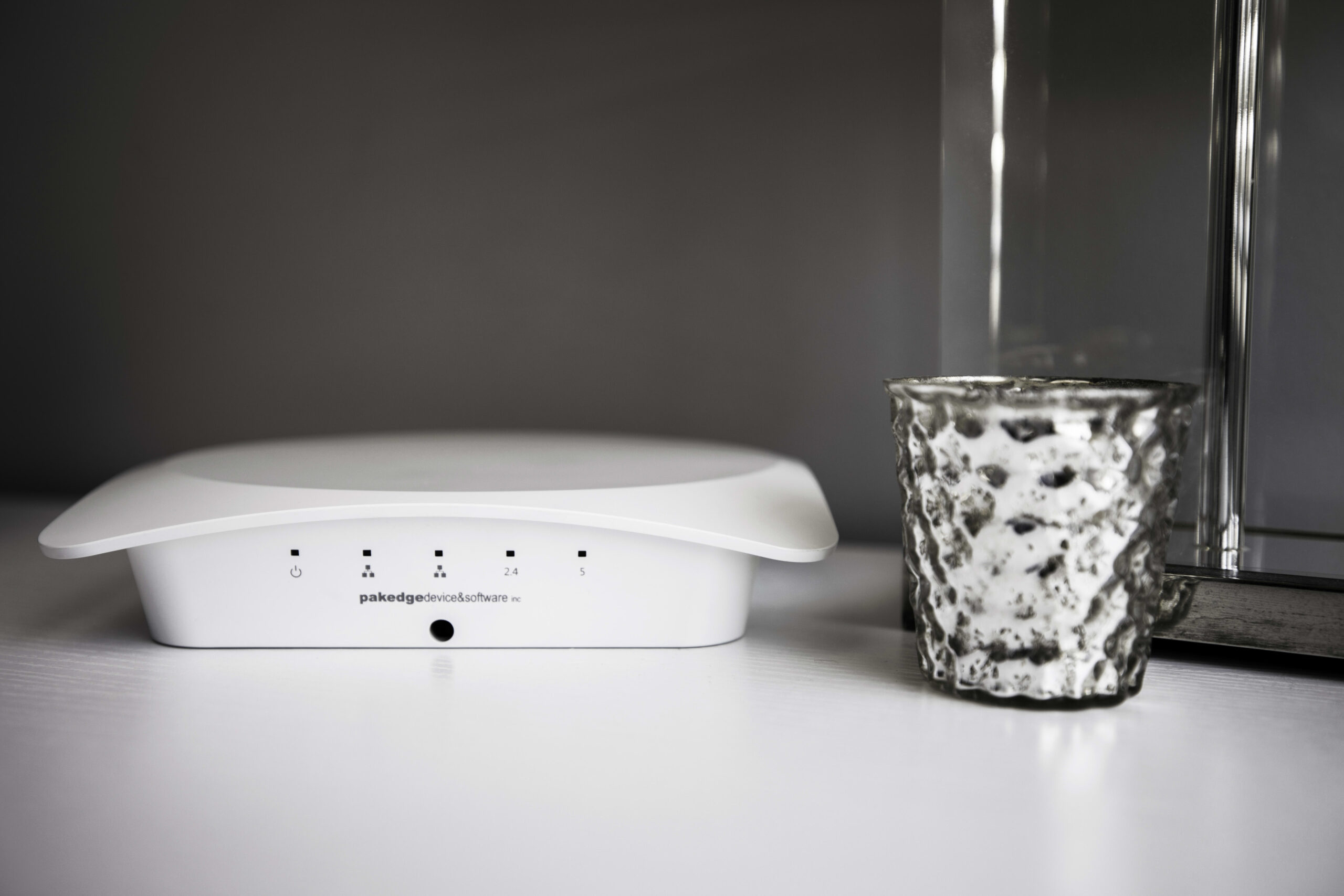
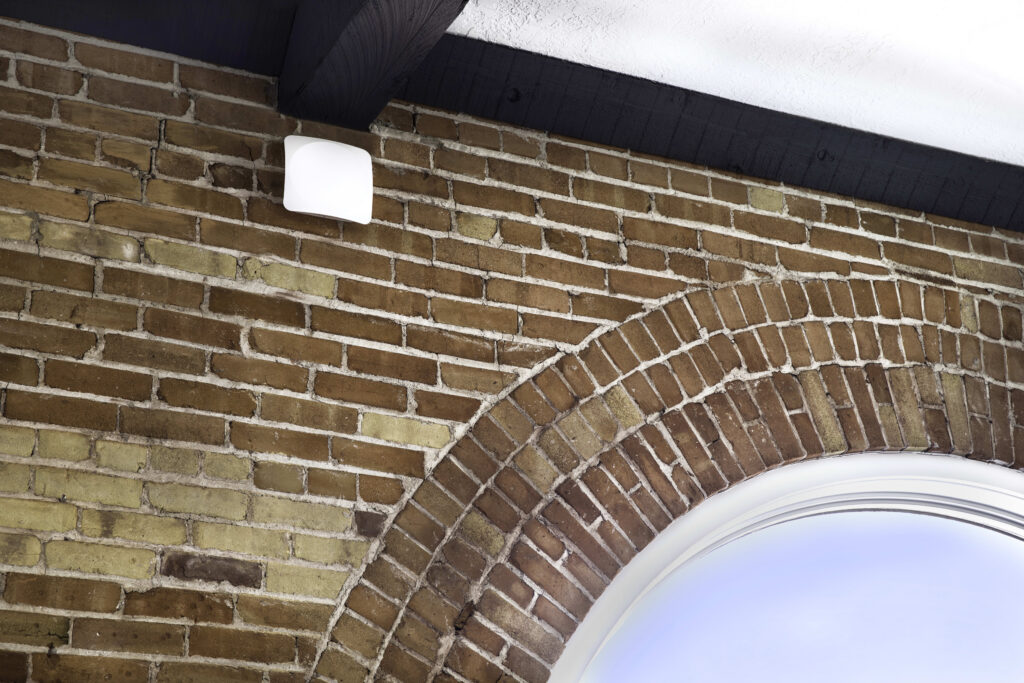
The Benefits of GREAT equipment:
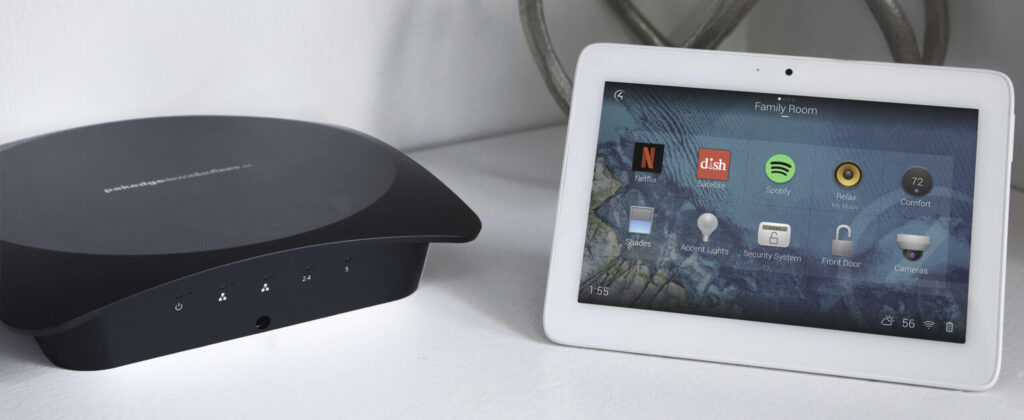

- Reliable Connectivity: Smart homes rely on constant communication between devices. High-quality networking equipment ensures that devices stay connected without interruptions, providing a smooth and reliable user experience.
- Speed and Efficiency: As the number of connected devices increases, the network can become congested. Modern routers, switches, and mesh systems are designed to handle high bandwidths, ensuring that devices function without lag, especially during data-intensive tasks like streaming or video calls.
- Scalability: Networking equipment that supports scalability is important in future-proofing a smart home. With more devices being added to the network, it’s crucial to have equipment capable of handling increased traffic and demands over time.
- Security: A robust network ensures the security of smart devices. Proper encryption, firewalls, and security protocols protect devices from hacking, ensuring privacy and safeguarding sensitive data. Without reliable networking equipment, vulnerabilities can be exposed, leaving smart devices open to security threats.
- Centralized Control: Good networking equipment allows all smart devices to be connected in a centralized manner, enabling efficient control via mobile apps, voice assistants, or home automation systems. Devices can interact, triggering actions like adjusting the thermostat when motion is detected or turning off lights when the door is locked.
- Remote access: Premium networking equipment can provide remote access to allow for rebooting and sequencing a reboot for specific components that can often go offline when not used for extended periods of time. These include cable boxes, controllers & thermostats to name a few. Networking equipment that includes OVRC allows for such remote access.
- Energy Efficiency: Reliable network connectivity can improve energy management in a smart home by allowing devices like thermostats, lighting, and appliances to be controlled remotely or programmed to operate at optimal times, leading to lower energy consumption and reduced utility bills.
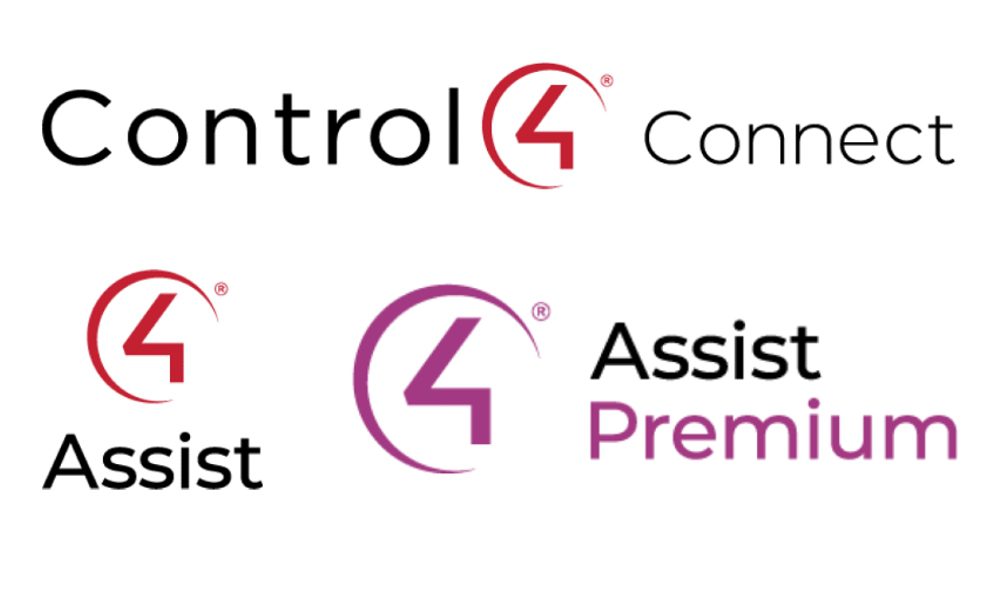
The Point:
In a smart home, networking equipment is essential for ensuring that devices can interact seamlessly, remain secure, and perform efficiently. By investing in quality routers, modems, switches, and other network components, homeowners can create a connected environment that is both reliable and scalable, supporting the growing number of devices and technologies that define modern living.
The GiCor Experience:
Understanding the network requirements for each project is paramount. By incorporating the best equipment, we can maximize available bandwidth to the project and ensure that the equipment selected provides a future proof design as higher bandwidths become available.
So where does GiCor come in?
We recommend that we are contacted at the beginning of the project to ensure that all possibilities & control options are on the table. If your space is already complete, we can work with that too!
Call to set up an apt with one of our network specialists in the planning stages of your project. 1-866-664-4267 or info@gicor.com


Brands We Carry

































